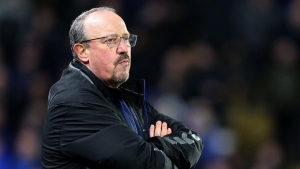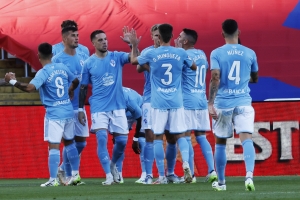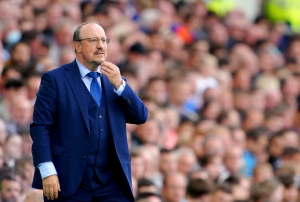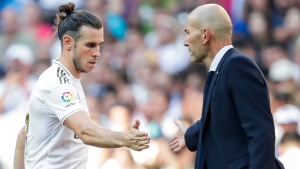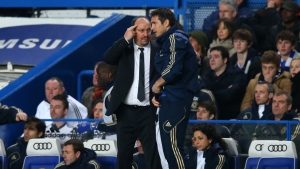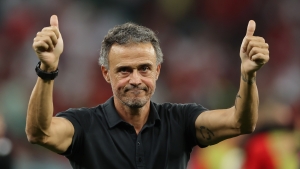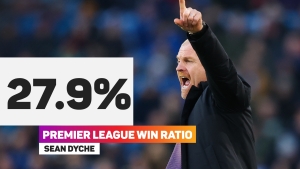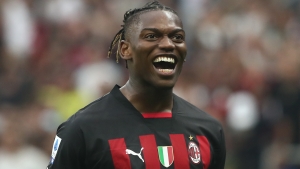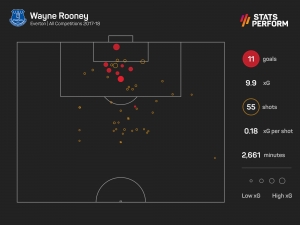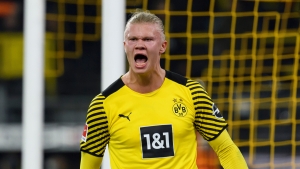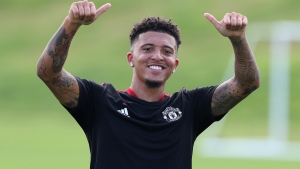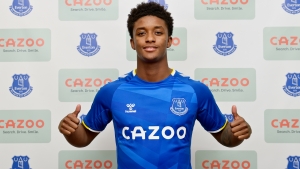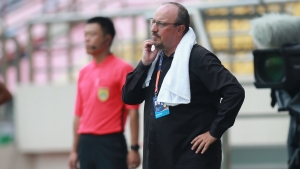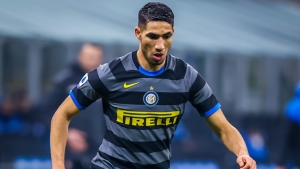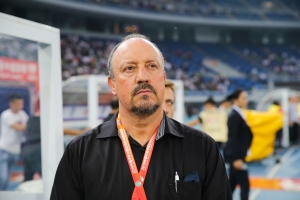On December 21, 2019, two new managers sat in the stands at Goodison Park, watching on as Everton hosted Arsenal.
Everton had just appointed Carlo Ancelotti amid Duncan Ferguson's full-blooded, temporary spell in charge after Marco Silva's sacking.
On the opposite side of the director's box, Mikel Arteta, who had been unveiled as Arsenal's new head coach a day earlier, looked down as Freddie Ljungberg took charge for the final time as interim boss. The match finished 0-0, both teams in need of reinvigoration and a sense of direction.
Arsenal have found that direction. Everton, it is safe to say, have not.
Arteta, of course, played for both clubs. A star of the David Moyes era at Everton, Arteta was "the best little Spaniard" the blue half of Merseyside knew, though the relationship was soured slightly when he left for Arsenal in 2011.
The former midfielder had been linked with the vacant Everton job when it became apparent he was ready to cut his teeth in management, though Arsenal always seemed the likely destination.
In fairness, while Farhad Moshiri, once an investor at Arsenal, and Everton's board have made numerous mistakes over the last several seasons, bringing in such an experienced, quality manager as Ancelotti seemed like a no-brainer.
Indeed, there were some suggestions it was Arsenal who had made the wrong call, going for the inexperience of youth (Arteta was only 37 at the time) when a proven, top-class winner in the form of Ancelotti was right there.
Arsenal would go on to finish eighth that season, while the Toffees ended in 12th. Yet just over three years later, Everton welcome Arsenal to Goodison Park again, and the contrast in their fortunes could not be more different.
While the Gunners sit five points clear at the top of the Premier League, Everton – now under the tutelage of Sean Dyche – are embroiled in a relegation scrap for the second season running. This time, though, it very much feels as if Moshiri and Co. might have pushed their luck too far.
Patience is a virtue
Arsenal supporters might be revelling in their title charge, but it would be fair to say that Arteta has not always had the backing of 100 per cent of the club's fanbase.
Despite leading Arsenal to FA Cup glory in his first half-season at the club (albeit no fans were at Wembley Stadium to witness it), Arteta was criticised in his first full campaign as the Gunners struggled to adapt fully to his approach.
Then there was his strained relationship with Pierre-Emerick Aubameyang, whose form fell off a cliff after he was rewarded with a lucrative new contract in 2020, and a move for free agent Willian that Arteta pushed hard for, only for the playmaker – now back in the Premier League at Fulham – to struggle.
Aubameyang's last appearance for Arsenal came, coincidentally, in the corresponding fixture at Goodison Park last term, when the Gunners surrendered a lead and lost 2-1 to a late Demarai Gray thunderbolt.
There was yet more scrutiny directed at Arteta and sporting director Edu when, with Arsenal having failed to add to their ranks in January last year, the 2021-22 season culminated in them losing out on Champions League football to rivals Tottenham.
A 5-1 home win over, you guessed it, Everton, on the final day did ensure they ended a campaign on a high, but the business Arsenal did in pre-season has been transformative, and Arteta seems to have finally and firmly got his message across.
Arsenal head to Goodison Park with 50 points, 35 more than Everton, having lost just one league game all season. They have scored 45 goals, second only to Manchester City; Everton, on the other hand, collected the last of their three victories (the lowest total in the top flight) on October 22, and have netted just 15 times in 20 games.
While Arsenal are reaping the rewards for the patience shown in Arteta – and, it must be noted, large financial backing, too – Everton are paying the price for flitting between managers and chaos in the upper echelons at the club.
A club in chaos
Even with Arsenal flying high, Everton could have cause for optimism heading into this match. They have, after all, won three of their last four Premier League games against Arsenal, as many as they had in their previous 26 against them, and that includes two successive home defeats last season and in the 2020-21 campaign.
They last won three home league fixtures in a row against the Gunners between March 1977 and August 1978, but the chaos of the last month, which has somehow surpassed even the disarray of January 2022, when Rafael Benitez was allowed to sell Lucas Digne before being sacked himself and replaced two weeks later by Frank Lampard, has drained any air of optimism that might come with a new manager.
Lampard was sacked on January 23, less than a year into the job following a 2-0 defeat at West Ham two days prior. In a summary of the level of dysfunction at Everton, the club did not officially confirm Lampard's sacking until over five hours after it was briefed to media outlets.
On the same day, Sky Sports pundit Jamie Carragher labelled the Toffees "the worst run club in the country" – it's hard to argue with that assessment.
While Lampard, with a meagre 23.7 per cent win ratio in the league, can have few complaints over his dismissal, that dysfunction was clear again in the managerial search that followed. Marcelo Bielsa was the owner's preferred candidate and even flew into London for talks, reportedly offering to take over the club's under-21s in view to taking charge of the first team at the end of the season.
Dyche, a polar opposite in terms of playing style, was appointed instead, though even that announcement dragged on into Monday.
The hope will be that Dyche can steady the ship, though he has already suffered a blow, with Everton – who are said to have targeted up to 14 players in a last-ditch scramble on deadline day following the £45million sale of Anthony Gordon to Newcastle United – the only Premier League club that failed to make a signing in January, when reinforcements were evidently required.
Arsenal, on the other hand, could not get their first-choice acquisitions (Mykhaylo Mudryk and Moises Caicedo) through the door, but boosted their ranks with Leandro Trossard, Jakub Kiwior and Jorginho.
Forks in the road
With Arteta's links to Everton, it's hard not to make direct comparisons, especially with the start of his Arsenal tenure coming right after that goalless draw back in 2019.
Arteta's first game in charge of Arsenal was a 1-1 draw against Bournemouth on Boxing Day, 2019. He has now overseen 115 top-flight matches as Gunners boss, winning 65, losing 32 and drawing 18.
That 56.5 per cent win ratio is far better than any of the three permanent Everton managers that have immediately proceeded Dyche.
Ancelotti won his first match, against Dyche's Burnley, on the same day as Arsenal drew with Bournemouth, and despite a flying start to his one full season in charge in 2020-21, even he could not guide Everton to European football.
He left for Real Madrid with a 43 per cent win record (25/58) in the league, having taken 1.5 points per game, not far off Arteta's 1.85, but far better than Benitez's 1.0 or Lampard's 0.9.
In the same timeframe, Dyche oversaw 88 Premier League matches at Burnley, winning 22 (25 per cent), drawing 27, losing 39 and averaging 1.1 points per game.
Dyche's overall win percentage across his 258 top-flight matches is 27.9, though his Clarets side did tail off in his final seasons, prior to his dismissal last April.
Only against City (11) has Dyche lost more Premier League games than he has to Arsenal (10), who would become the first team in English league history to register 100 wins against a specific opponent should they triumph.
Arteta has lost three of his five matches against his old club as a manager, so it's no sure-fire guarantee for Arsenal, but Dyche has an unenviable task on his hands... not just on Saturday, but in the coming months.























